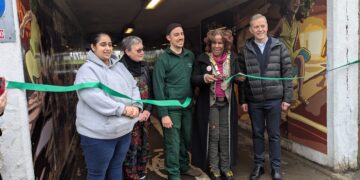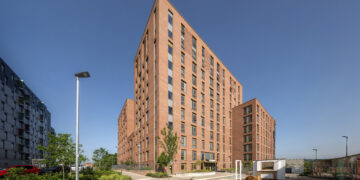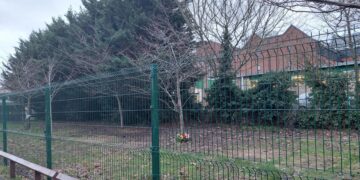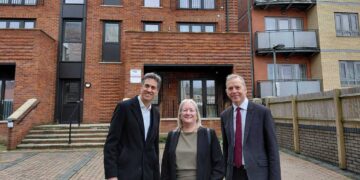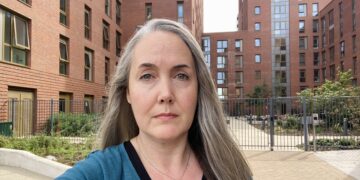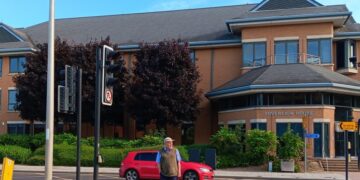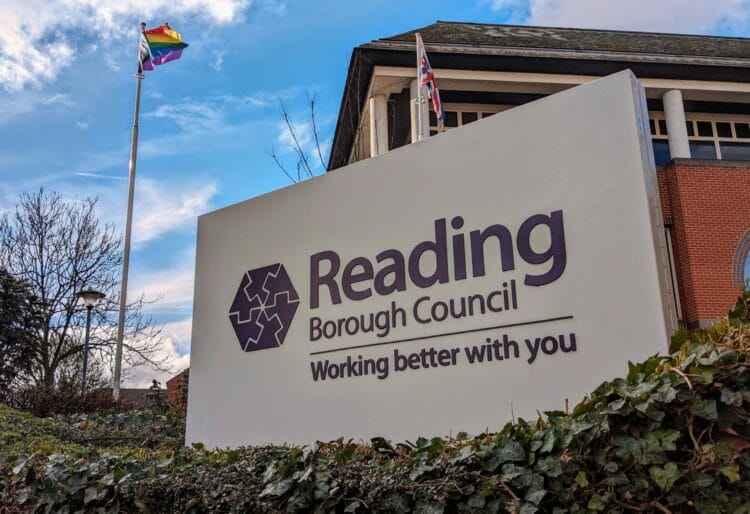CARBON emissions from the borough have continued to fall, Reading Borough Council has announced.
The latest annual report produced by the council examining its Climate Emergency Strategy up to 2025 has shown that the rate of carbon emissions is coming down amid major sustainability projects in the town.
The report showed that carbon emissions from the town have fallen by more than half since 2005 (54%), constituting the 12th largest reduction in the country.
The council’s own carbon footprint has seen a reduction of more than 72% since the 2008/2009 period, since which fossil fuel use has also fallen by 57%.
However this is a slight increase on the previous year’s figure, which the council said was partly due to the national grid seeing an increase in power generated from gas fired power station.
The report explained that While the 2021 data showed a ‘bounce-back of emissions in Reading compared to 2020, reflecting the easing of pandemic restrictions, the 2022 data shows that emissions have reverted to a downward trajectory.
It detailed that there has been a continued year-on-year reduction in carbon emissions of 3%, and Reading’s per capita emissions remain the lowest in Berkshire and lower than the South East and UK average.
The report also highlighted a number of case studies in the borough, including the University of Reading being name Sustainable University of the Year by The Times and No1 in the People & Planet University League Table.
It also cited Reading Central and Abbey Quarter Business Improvement Districts’ (BID) offer of free collection and recycling of cardboard and waste from electrical and electronic equipment (WEEE) to businesses, and the school streets program put in place by the council.
Despite this, the report also noted than a number of steps still needed to be taken, including the decarbonisation of council sites, which is ongoing, and adhering of event organisers in Reading to the Green Event Code of Practice (GECOP)
Cllr John Ennis, Lead councillor for Climate Strategy and Transport, said:”These annual reports highlight the great work that is taking place across the borough in response to the climate emergency.
“We are seeing the borough’s carbon emissions continuing to fall, with Reading achieving the 12th biggest reduction out of 374 local authorities across the country.
“The Council is committed to reducing its own emissions through a wide range of projects which should see significant results in the future. But the Council’s emissions only account for 1.5% of Reading’s overall carbon footprint.
“We want to see Reading continue to thrive and succeed while being a safe, clean and healthy place to live and visit.
“It is only by all of us taking local climate action as individuals, businesses, organisations and communities that we will achieve our ambitious aim of being a net-zero borough.”
Heather Marshall and Dylan Parkes, co-chairs of Reading Climate Change Partnership, said:
“We don’t have to engage in grand, heroic actions to participate in change. This past year has shown us that small acts, delivered by many, can help us on our journey to net zero.
“We are proud of the climate initiatives being delivered by our neighbours, local community groups, and businesses. We recognise no single organisation can deliver net zero alone, nor should they have to.
“The Reading Climate Change Partnership is working on Reading’s next Climate Emergency Strategy, bringing people together to help define the town’s climate action priorities for 2025–2030.
“The new strategy will help people who live, work, study and play in Reading to contribute to the goal of reaching net zero by 2030.
“Some organisations will need to take bigger steps than others, but it is worth remembering that even small steps can make a big difference if thousands of us take them together.”
Green Party Cllr Dave McElroy said: “Borough emissions are still flatlining–they are still higher than the lowest point they reached in 2020.
“The council’s direct emissions–the one part that the council has complete and utter control over–have actually gone up well above the target.
“The Labour councillor in charge of this must be quietly very disappointed with the lack of progress.
He explained: “We need a massive home insulation program and major investment in public transport and active travel options.
“But instead, the Labour budget cut back on warmer homes, raised bus fares by 50% and flushed £22 billion of taxpayer money down the toilet on wishful carbon capture schemes.”
He added: “I really don’t see how the council are going to meet their targets here; they are already falling behind–the annual report acknowledges that much more needs to be done, something the report has warned every single year that I’ve been a councillor.
“How hot does it have to get before the Labour council and government do more than just talk about tackling climate change?”

